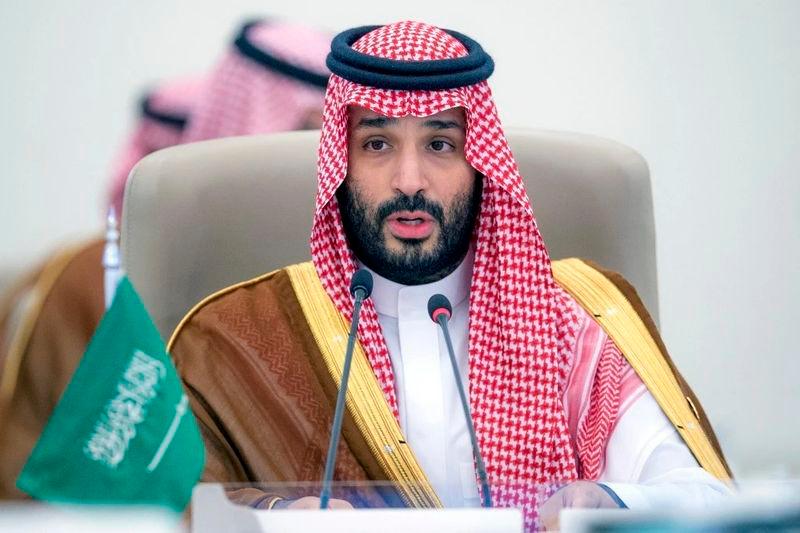RIYADH: Saudi Arabia’s de facto ruler called for immediate ceasefires in Gaza and Lebanon at a joint Arab League and Organisation of Islamic Cooperation summit that will renew calls for a Palestinian state on Monday.
Arab and Muslim leaders gathered in Riyadh, more than a year into the Israel-Hamas war and regional escalation, in what is seen as a chance to send a message to US president-elect Donald Trump.
Opening the summit, Crown Prince Mohammed bin Salman said the international community must “immediately halt the Israeli actions against our brothers in Palestine and Lebanon”, condemning Israel’s campaign in Gaza as “genocide”.
“(Saudi Arabia) affirms its support for the brothers in Palestine and Lebanon to overcome the disastrous humanitarian consequences of the ongoing Israeli aggression,“ he said.
A draft resolution for the summit stresses “firm support” for “national rights” for the Palestinian people, “foremost among which is their right to freedom and to an independent, sovereign state”.
Just hours earlier, newly appointed Israeli Foreign Minister Gideon Saar said it was not “realistic” to establish a Palestinian state, dismissing it as a “Hamas state”.
“I don’t think this position is realistic today and we must be realistic,“ Saar said in response to a question during an appearance in Jerusalem.
The Saudi foreign ministry announced plans for the summit in late October during a meeting, also in Riyadh, of a new “international alliance” to press for the establishment of a Palestinian state.
It comes one year after a similar gathering in Riyadh of the Cairo-based Arab League and the Jeddah-based Organisation of Islamic Cooperation during which leaders condemned Israeli forces’ actions in Gaza as “barbaric”.
‘Calling out’ Israel
This time around, Trump’s election last week for a second term in the White House is likely to be on leaders’ minds, said Anna Jacobs, senior Gulf analyst for the International Crisis Group think tank.
“This summit is very much an opportunity for regional leaders to signal to the incoming Trump administration what they want in terms of US engagement,“ she said.
“The message will likely be one of dialogue, de-escalation and calling out Israeli military campaigns in the region.”
The war in Gaza began with Hamas’s unprecedented attack on southern Israel on October 7 last year, which resulted in 1,206 deaths, mostly civilians, according to an AFP tally of Israeli official figures.
Israel’s retaliatory campaign has killed more than 43,600 people in Gaza, most of them civilians, according to data from the Hamas-run territory’s health ministry that the United Nations considers reliable.
Lebanon-based Hezbollah, which like Hamas is backed by Iran, began firing on Israel after the October 7 attack. The regular cross-border exchanges escalated in late September when Israel intensified its air strikes and sent ground troops into southern Lebanon.
Despite criticism of the impact Israel’s military campaign has had on Gaza civilians, outgoing US President Joe Biden ensured that Washington remained Israel’s most important military backer during more than a year of fighting.
‘Rely on the Saudis’
In his first term, Trump’s actions showed him as an even firmer supporter of Israel. He defied international consensus by recognising Jerusalem as Israel’s capital and moving Washington’s embassy there.
He also endorsed Israeli settlements in the occupied West Bank, which are illegal under international law.
Under the Abraham Accords, Trump oversaw the establishment of diplomatic relations between Israel, the United Arab Emirates and Bahrain, as well as Morocco.
Though Saudi Arabia did not join those agreements, Trump cultivated warm ties with the Gulf kingdom while in office and has deepened his business connections to the region during the Biden years.
Saudi Arabia has pressed pause on a US-brokered deal where it would recognise Israel in return for security and economic benefits, insisting there will be no diplomatic ties without a Palestinian state.
The 57-member OIC and 22-member Arab League include countries which recognise Israel and those firmly opposed to its regional integration.
Last year’s summit in Riyadh saw disagreement on measures like severing economic and diplomatic ties with Israel and disrupting its oil supplies.









